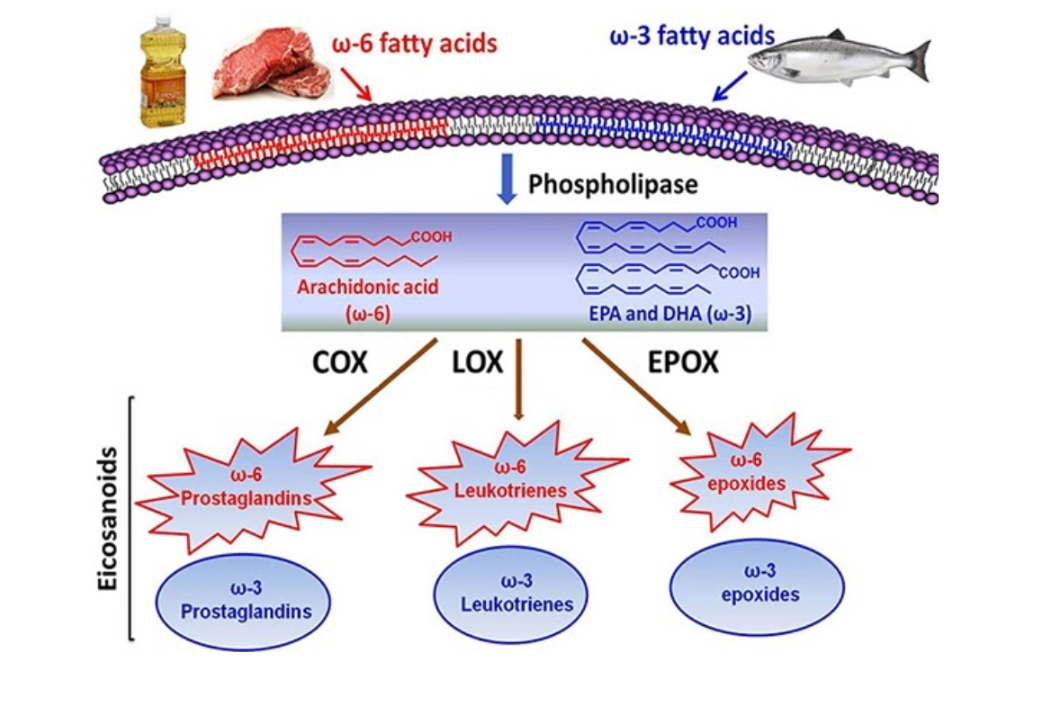Information about the Das Lab.
 The prime research direction in The Das Laboratory is to elucidate the biochemical mechanism of the enzymes in the EPOX pathway (Work is funded by NIH R01 from National Institute of General Medical Sciences (NIGMS) and American Heart Association grant). Dietary consumption of ω-3 and ω-6 fatty acids changes the overall physiology in animals and humans. One of the pathways to change the overall physiology is the conversion of ω-3 and ω-6 fatty acids into endocannabinoids. This is done through several enzymes in the lipid synthesizing pathways. The primary research direction in the laboratory is the study of omega-3 endocannabinoid metabolism by EPOX enzymes leading to the formation discovery of novel endocannabinoid epoxides that are anti-inflammatory and vasodilatory. (Work is funded by NIH grants). A recent research direction in the laboratory is to study the metabolism of phytocannabinoids by cytochrome P450s to give rise to novel oxy-cannabinoids with altered and novel pharmacological properties.
The prime research direction in The Das Laboratory is to elucidate the biochemical mechanism of the enzymes in the EPOX pathway (Work is funded by NIH R01 from National Institute of General Medical Sciences (NIGMS) and American Heart Association grant). Dietary consumption of ω-3 and ω-6 fatty acids changes the overall physiology in animals and humans. One of the pathways to change the overall physiology is the conversion of ω-3 and ω-6 fatty acids into endocannabinoids. This is done through several enzymes in the lipid synthesizing pathways. The primary research direction in the laboratory is the study of omega-3 endocannabinoid metabolism by EPOX enzymes leading to the formation discovery of novel endocannabinoid epoxides that are anti-inflammatory and vasodilatory. (Work is funded by NIH grants). A recent research direction in the laboratory is to study the metabolism of phytocannabinoids by cytochrome P450s to give rise to novel oxy-cannabinoids with altered and novel pharmacological properties.
A recent research direction in the laboratory is to study the metabolism of phytocannabinoids by cytochrome P450s to give rise to novel oxy-cannabinoids with altered and novel pharmacological properties. (Work is funded by NIH R21 grant from NIDA). Currently, our research areas are:
Biochemical Mechanism of Epoxygenases
- Mechanism of CYP2J2 epoxygenase enzyme involved in the metabolism of omega-3 fatty acids to generate anti-inflammatory cardioprotective lipid metabolites.
- Mechanism of cardiotoxicity of chemotherapeutic drugs that are mediated via interaction with CYP2J2 epoxygenase.
Endocannabinoids & Phytocannabinoids metabolism by P450s
- Endocannabinoid metabolism by CYP epoxygenases to generate novel anti-inflammatory endocannabinoid epoxide derivatives that bind to cannabinoid receptors.
- Phytocannabinoid metabolism by human cytochrome P450s to form oxy-cannabinoids with altered pharmacology
- Role of Anti-inflammatory lipid metabolites in Multiple Sclerosis (collaborator: Andrew Steelman and Rodney Johnson)
- Role of Anti-inflammatory lipid metabolites in bone cancer pain in Canine Osteosarcoma (collaborator: Prof. Timothy Fan)
Our Principal Investigator is Aditi Das.
Want to learn more about the Das Lab? Check out our website here.